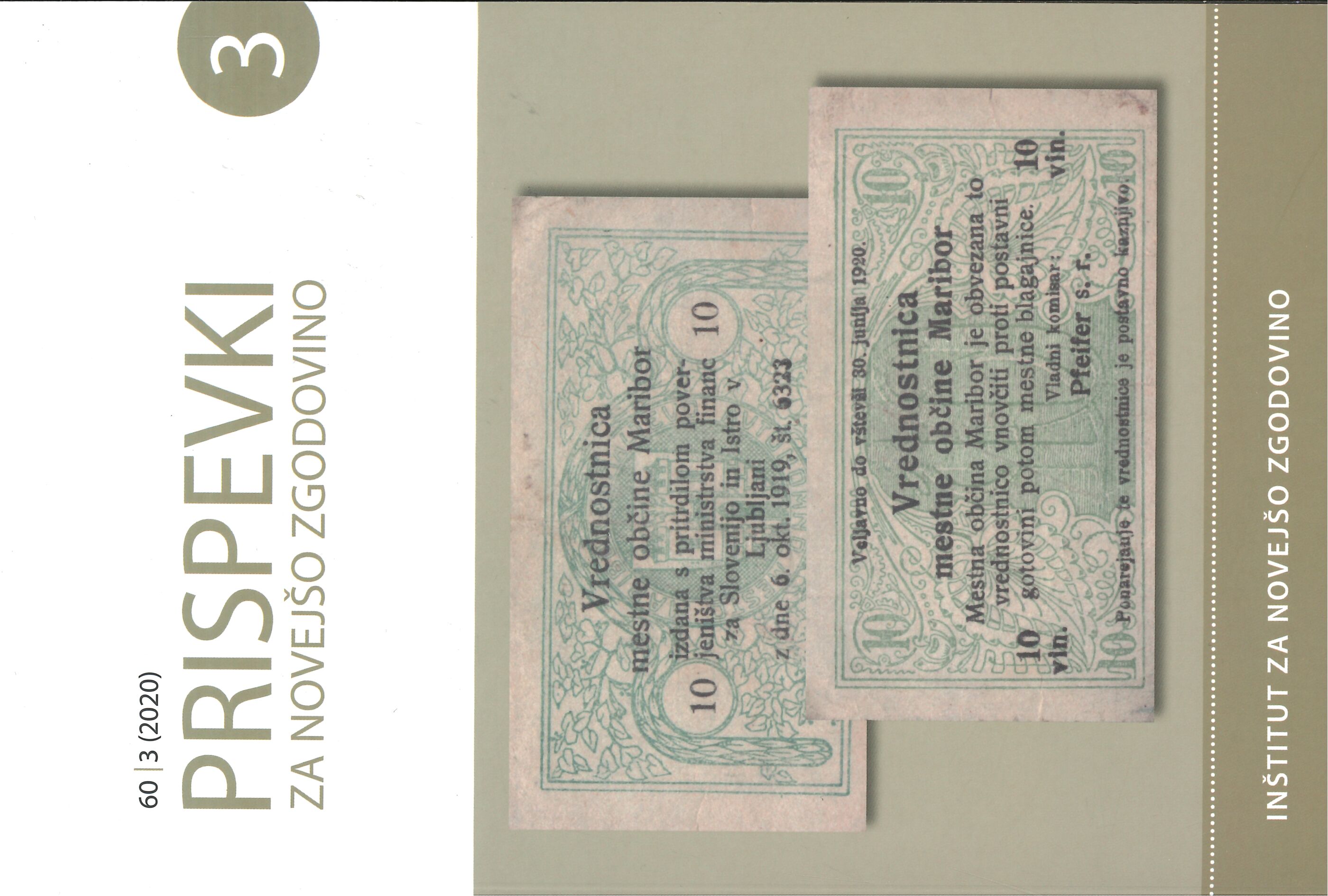Ivan Dečko’s First Term of Office in the Provincial Assembly (1890–96)
DOI:
https://doi.org/10.51663/pnz.60.3.01Keywords:
Styria, Austro-Hungary, Maribor, Celje, political history, Ivan DečkoAbstract
In the present contribution, the author analyses the Provincial Assembly appearances of the Lower Styrian deputy Ivan Dečko during his first term of office (1890–96). In 1885, Dečko moved from Maribor to Celje, found employment in Josip Sernec’s law firm, and visibly encouraged the Slovenian “breakthrough” in the city by the river Savinja. He also applied his thoughtful tactics at the level of the Provincial Assembly when he became a member of the Styrian Provincial Assembly in the Ljutomer rural curia in 1890. With his speeches, petitions, and interpellations in the Provincial Assembly, he and other Slovenian deputies stirred up unrest in the German (liberal) ranks and forced them into national homogenisation. Also under Dečko’s influence, the clever Slovenian politics at the beginning of the 1890s won over the rural areas completely while restricting the Lower Styrian Germans to the cities and certain towns.
References
Viri in literatura
Časopisje
Deutsche Wacht, 1890.
Marburger Zeitung, 1892, 1893, 1895.
Slovenski gospodar, 1890, 1891, 1893, 1895.
Südsteirische Post, 1893.
Literatura
Baš, Franjo. Prispevki k zgodovini severovzhodne Slovenije. »Doba Ivana Dečka«. Maribor: Založba Obzorja, 1989.
Cvelfar, Bojan in Andrej Studen. Posameznosti iz vsakdanjega življenja v Celju pred prvo svetovno vojno. V: Iz zgodovine Celja 1848-1918. Odsevi preteklosti 2. 323-68. Celje: Muzej novejše zgodovine, 1998.
Cvirn, Janez. »Celjsko gimnazijsko vprašanje (1893-1895)«. Kronika 45, št. 1-2 (1997): 102-11.
Cvirn, Janez. »Josip Sernec, rodoljub z dežele (spremna študija)«. V: Josip Sernec, Spomini, 91-161. Osrednja knjižnica Celje, Celje, 2003.
Cvirn, Janez. Dunajski državni zbor in Slovenci (1848–1918). Celje: Zgodovinsko društvo; Ljubljana: Znanstvena založba Filozofske fakultete, 2015.
Čuček, Filip. »Politična dejavnost Ivana Dečka do začetka devetdesetih let 19. stoletja«. Prispevki za novejšo zgodovino 52, št. 1 (2012): 21-38.
Čuček, Filip. »Problemi popisovanja občevalnega jezika na Spodnjem Štajerskem (1880-1910)«. V: Barbara Šterbenc (ur.), Zgodovinski pogledi na zadnje državno ljudsko štetje v Avstrijskem primorju, 129-42 (Ljubljana: Založba ZRC, Zgodovinski inštitut Milka Kosa, 2012).
Čuček, Filip. Svoji k svojim. Ljubljana: Inštitut za novejšo zgodovino, 2016.
Čuček, Filip. Uspehi spodnještajerskih Slovencev v Taaffejevi dobi. Celje: Zgodovinsko društvo, 2007.
Marko-Stöckl, Edith.»Der steiermärkische Landtag«, v: Die Habsburgermonarchie 1848–1918, Band VII/2, 1683–1718. Wien: Verlag der österreichischen Akademie der Wissenschaften, 2000.
Sernec, Josip. Spomini. Osrednja knjižnica Celje, Celje, 2003.
Spindler, Vekoslav. Dr. Ivan Dečko in njegova doba. Maribor: Tisk Mariborske tiskarne d. d., 1938.
Stimmer, Gernot. Eliten in Österreich 1848-1970. Wien, Köln, Graz: Böhlau Verlag, 1997.
Tiskani viri
Stenographische Protokolle über die Sitzungen des Steierm. Landtages. VII. Landtags-Periode:
- I. Session, 11., 16., 19., 21. Sitzung, 1890.
- II. Session, 21., 23. Sitzung, 1892.
- III. Session, 20., 21., 25., 26. Sitzung, 1893.
- IV. Session, 22. Sitzung, 1894.
- VI. Session, Anhang A, Verzeichnis der Mitglieder der steierm. Landtages vom Jahre 1895/96, XXXIV.
Downloads
Published
Issue
Section
License
Authors who publish with this journal agree to the following terms:
- Authors retain copyright and grant the journal right of first publication with the work simultaneously licensed under a Creative Commons Attribution License that allows others to share the work with an acknowledgement of the work's authorship and initial publication in this journal.
- Authors are able to enter into separate, additional contractual arrangements for the non-exclusive distribution of the journal's published version of the work (e.g., post it to an institutional repository or publish it in a book), with an acknowledgement of its initial publication in this journal.
- Authors are permitted and encouraged to post their work online (e.g., in institutional repositories or on their website) prior to and during the submission process, as it can lead to productive exchanges, as well as earlier and greater citation of published work (See The Effect of Open Access).


